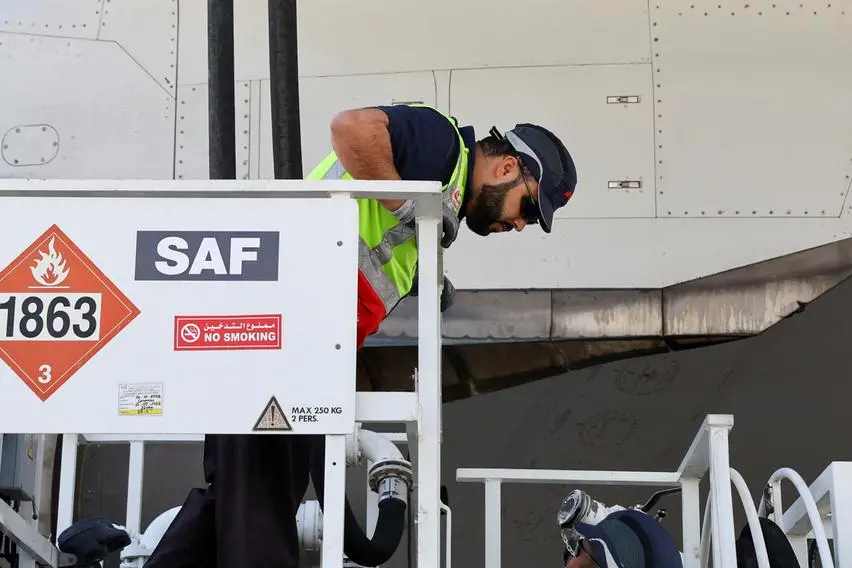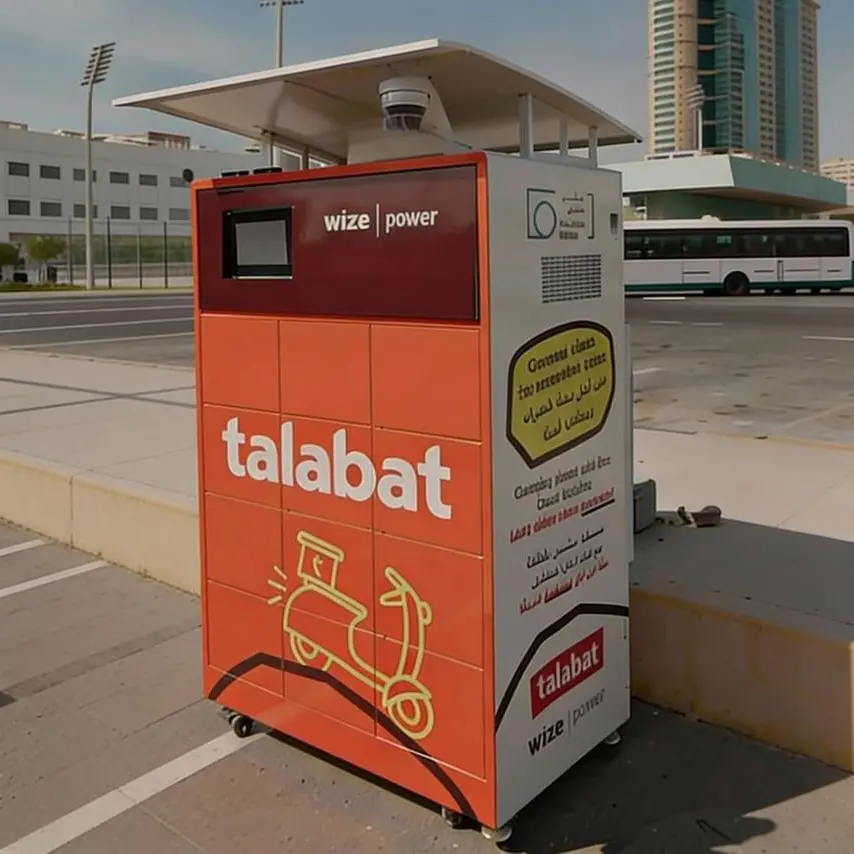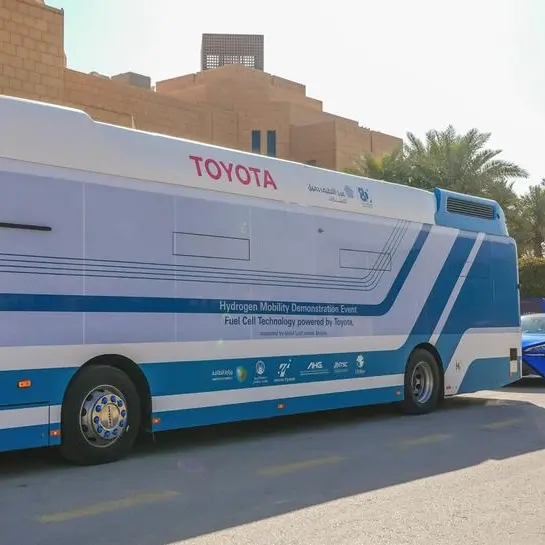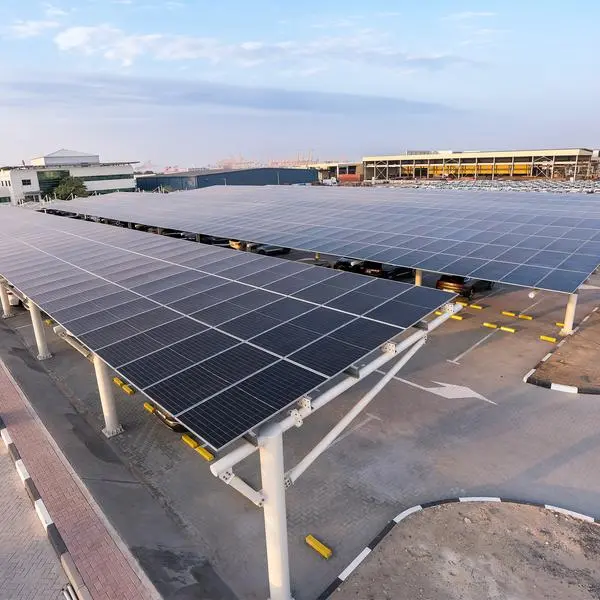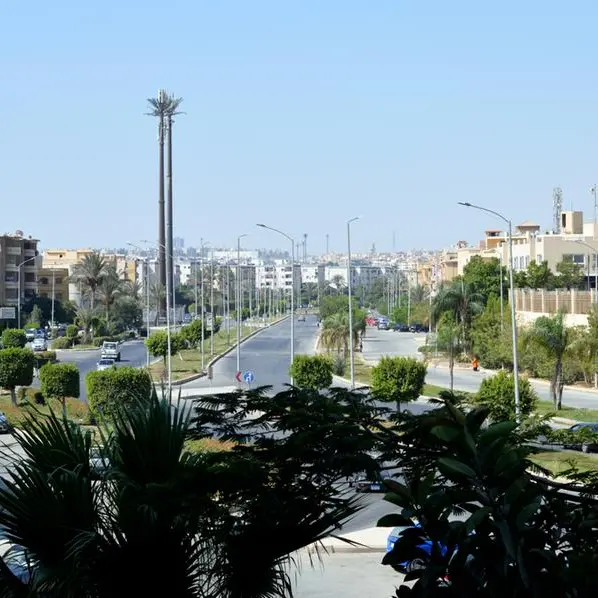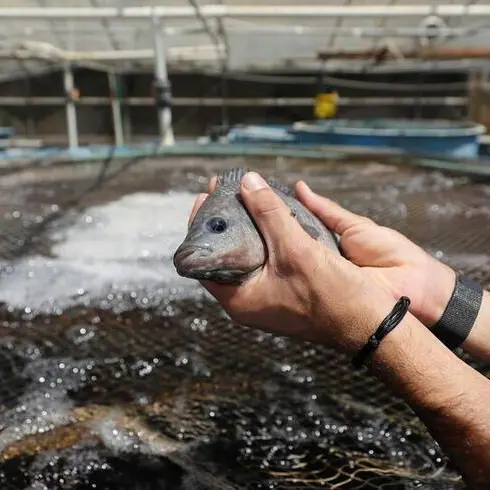PHOTO
Demand for sustainable aviation fuel (SAF) should see a long-sought boost after regional airline hub Singapore said it would require SAF on flights from 2026, but high costs and uncertain raw material supply will mean barriers to wider adoption remain.
The city-state will initially require flights to use 1% SAF, possibly rising to 3%-5% by 2030 depending on wider availability and adoption, which will be paid for by a levy on tickets, its transport minister said on Monday ahead of the Singapore Airshow this week.
Aviation produces about 2% of the world's emissions and is considered one of the hardest sectors to decarbonise because of the high costs and lack of SAF supply and the long life of aircraft limits the introduction of newer technologies to lower emissions.
SAF, which can be made synthetically from hydrogen or from biological materials such as used cooking oil or wood chips, can cost five times as much as conventional fuel and accounts for just 0.2% of the jet fuel market.
Based on Singapore's targets, consultants Wood Mackenzie forecast that its SAF demand will rise to about 2,000 barrels per day (bpd) in 2026, increasing up to 10,000 bpd in 2030.
"More investments are required to bring down the price of SAF such that it can be more widely adopted, especially outside of Singapore where markets can be more price sensitive," said Sushant Gupta, research director for Asia Pacific, refining and oils market, at Wood Mackenzie.
Analysts at FGE also predict that Singapore's SAF demand will be 2,000 bpd in 2026, with total aviation fuel demand to reach 171,000 bpd by then.
Finnish refiner Neste has recently expanded its renewable fuels plant in Singapore, which has a total capacity of 2.6 million metric tons per year, or 53,000 bpd, of which up to 1 million tons can be SAF, and that could meet the demand.
But securing bio-derived feedstock is expensive, said Ong Shwu Hoon, Asia Pacific fuels vice president at ExxonMobil Asia Pacific.
"There's a lot of investment needed in the aggregation, in the cleaning up and in the pre-treatment of this bio-derived feed. They are very difficult to handle," she said at an aviation conference on Monday.
SAF competes for the same waste oil feedstocks as renewable biodiesel, which is seeing fast-growing demand for road and sea transport as companies seek to reduce emissions.
In response to questions from Reuters on Singapore's new SAF policy, Shell said on Tuesday SAF is the only scalable in-sector option to help materially reduce emissions from flights by 2050 but requires greater availability of raw materials, better supply chains, improved production technologies, stronger demand and clearer policies.
"The availability of SAF will be a big challenge because the feedstock to manufacture it is finite," Peter Bellew, chief operating officer of Riyadh Air, said on Tuesday at the Airshow. Riyadh Air is a startup carrier based in Saudi Arabia, the world's top oil exporter.
"And transporting the feedstock is a challenge because that creates its own sustainability issues."
European regulators are also trying to boost the use of SAF by introducing rules that require airlines to meet minimums, such as 2% SAF in France by 2025 and 5% by 2030.
"SAF prices are unlikely to decrease due to competition for bio-feedstock," said Mukesh Sahdev, head of oil trading at consultancy Rystad, describing Singapore's up to 5% SAF target as ambitious.
(Reporting by Jeslyn Lerh and Emily Chow, additional reporting by Brenda Goh and Joe Brock; Writing by Florence Tan; Editing by Tony Munroe and Christian Schmollinger)
